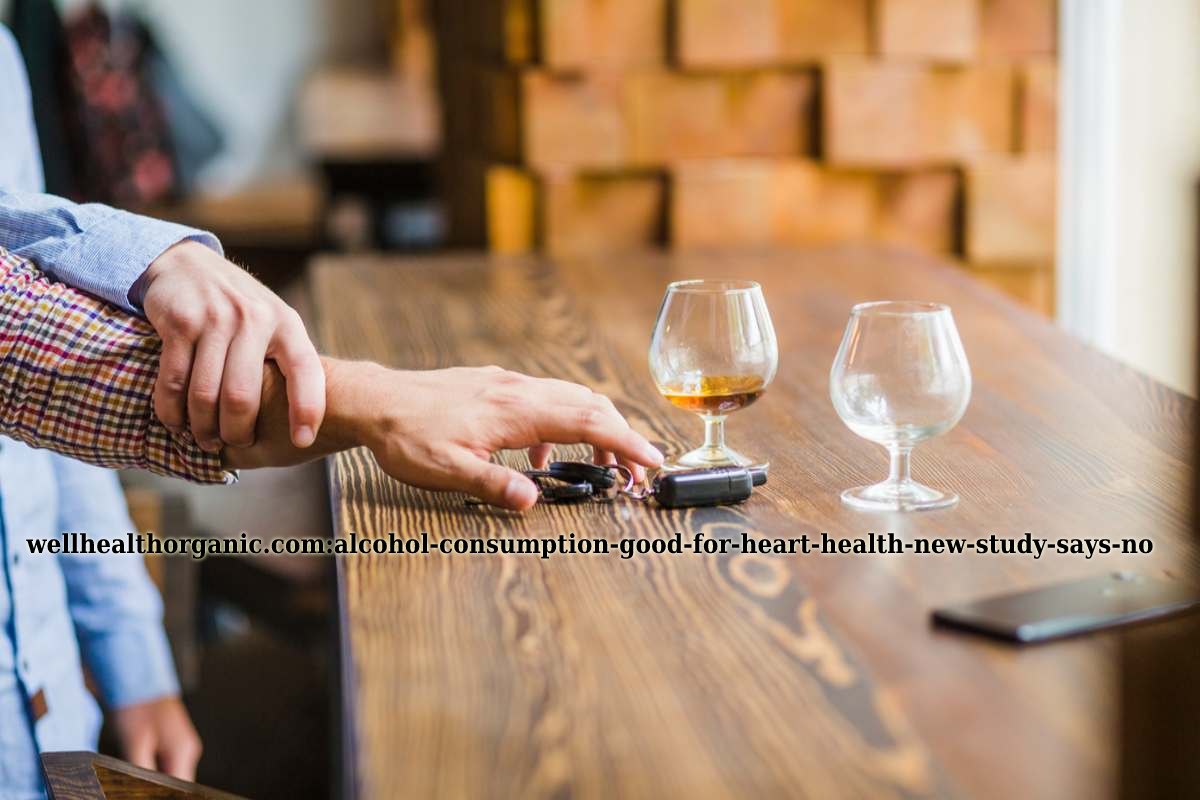wellhealthorganic.com:alcohol-consumption-good-for-heart-health-new-study-says-no – GENEVA (January 20, 2022) – In a new policy brief, the World Heart Federation (WHF) challenges the widespread view that moderate alcohol consumption reduces the risk of heart disease and noises for urgent and decisive action to address the unprecedented increase. Alcohol-related deaths and disabilities worldwide.
In 2019, additional than 2.4 million people died from alcohol, accounting for 4.3% of deaths worldwide and 12.6% of deaths among men aged 15-49. Alcohol is a psychoactive and harmful substance that causes significant harm to the human body. Its consumption is an important preventable risk factor for non-communicable diseases such as heart disease, cancer, digestive diseases and intentional and unintentional injuries and many infectious diseases.
The evidence is clear: any level of alcohol consumption can lead to the loss of a healthy life. Studies show that smooth small amounts of alcohol can increase the risk of heart disease, including coronary heart disease, stroke, heart failure, hypertensive heart disease, cardiomyopathy, atrial fibrillation, and aneurysm. Studies that claim alcohol protects against cardiovascular disease are based entirely on observational research, which does not take into account other factors such as pre-existing conditions and history of drinking in those considered “alcohol abstinent.” To date, no reliable link has been found between moderate alcohol consumption and a reduced risk of heart disease.
It is the Alcohol that Reasons Harm, Not the Beverage
Alcohol is a deadly, psychoactive and addictive substance and decades ago was classified as a Group 1 carcinogen by the International Agency for Research on Cancer – a high-risk group that includes asbestos, radiation and tobacco. Alcohol roots at least seven types of cancer, including the most common types of cancer, such as bowel cancer and lady breast cancer. Ethanol (alcohol) causes cancer done biological mechanisms, as the compound breaks down in the body, which means that any drink containing alcohol, regardless of its price and quality, carries the risk of causing cancer.
Heavy alcohol ingesting significantly increases the risk of cancer. However, recent data suggest that half of all alcohol-attributable cancers in the WHO European Region are due to “light” and “moderate” alcohol consumption – less than 1.5 liters of wine or less than 3.5 liters of beer or less than 450. Milliliters of spirits per week. This consumption is responsible for the majority of alcohol-related breast cancers in women, with the highest burden seen in European Union (EU) countries. In the European Union, cancer is the foremost cause of death – with an increasing incidence rate – and the majority of alcohol-related deaths are caused by various types of cancer.
Risks Start from the First Drop
To control a “safe” level of alcohol consumption, valid scientific evidence must demonstrate that, below a certain level, alcohol consumption does not pose a risk of illness or injury. The new WHO report clarifies: currently available evidence cannot indicate the existence of a threshold beyond which the carcinogenic effects of alcohol “activate” and begin to manifest themselves in the human body.
Furthermore, there are no studies demonstrating that the potential beneficial effects of light to moderate drinking on heart disease and type 2 diabetes outweigh the cancer risk associated with similar amounts of alcohol consumption for individual drinkers.
“We can’t talk about the safe level of alcohol use. It doesn’t substance how much you drink – the drinker’s health risk starts from the first drop of alcohol. The only thing we can say for unquestionable is that the more you drink, the more harmful – or, in other words, the less you drink, So much safer,” explains the regional consultant for the management of non-communicable diseases and alcohol. and illicit drugs in the WHO Local Office for Europe.
We are Missing the Bigger Picture
Globally, the WHO European Region has the highest levels of alcohol consumption and the highest number of heavy drinkers in the population. Here, more than 200 million people in the region are at risk of developing cancer due to alcohol.
Disadvantaged and vulnerable populations have higher alcohol-related mortality and hospitalization rates because the harms of a given amount and pattern of consumption are greater for poor drinkers and their families than for rich drinkers in any given society.
“Therefore, when we talk about the possible safe amount of alcohol consumption or its protective effects, we ignore the wider picture of alcohol harm in our region and the world. Although it is well established that alcohol causes cancer, this fact is still not widely known in most countries. Following the example of tobacco products, on alcohol labels “We need cancer-related health information messages; we need educated and trained health professionals who are comfortable informing patients about alcohol and cancer risk; and we need widespread public awareness of this topic in countries and communities,” says Dr. Ferreira-Borges.
Matching Terms to wellhealthorganic.com:alcohol-consumption-good-for-heart-health-new-study-says-no
- wellhealthorganic.com:health-hazards-of-prolonged-sitting
- wellhealthorganic.com
- benefits of brandy
- wellhealthorganic.com:which-is-better-hot-water-or-cold-water-bath
- wellhealthorganic.com:lemon-juice-know-home-remedies-easily-remove-dark-spots
- wellhealthorganic.com:health-benefits-of-lemon-oil
- wellhealthorganic.com/easily-remove-dark-spots-lemon-juice
- wellhealthorganic.com:healthy-strong-immunity-system
- wellhealthorganic.com/how-to-build-muscle-know-tips-to-increase-muscles
- wellhealthorganic.com:do-you-know-12-benefits-of-drinking-buttermilk-daily
- wellhealthorganic.com:raw-banana-flour-benefits-and-uses

